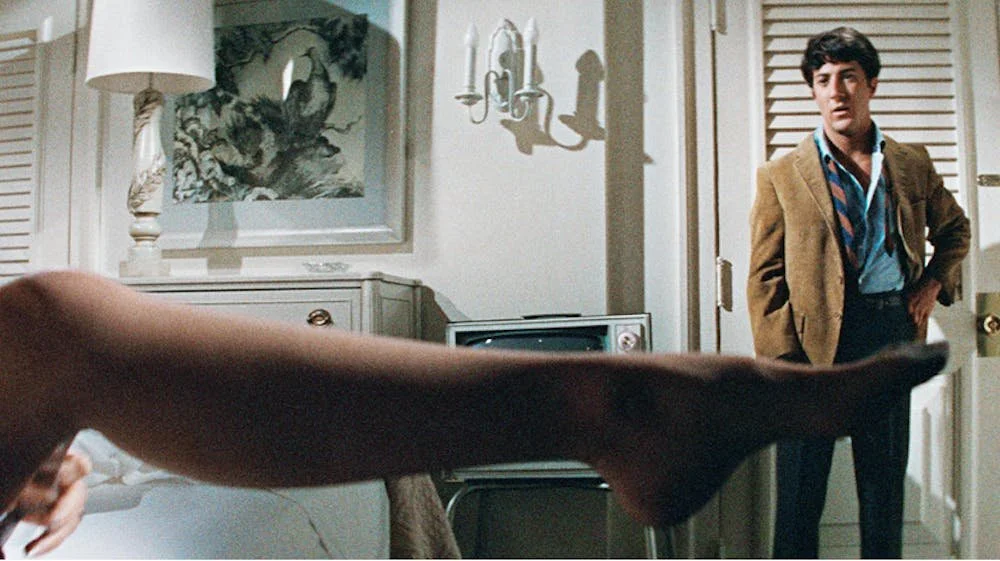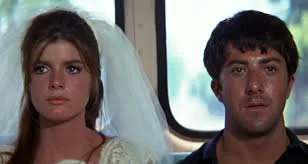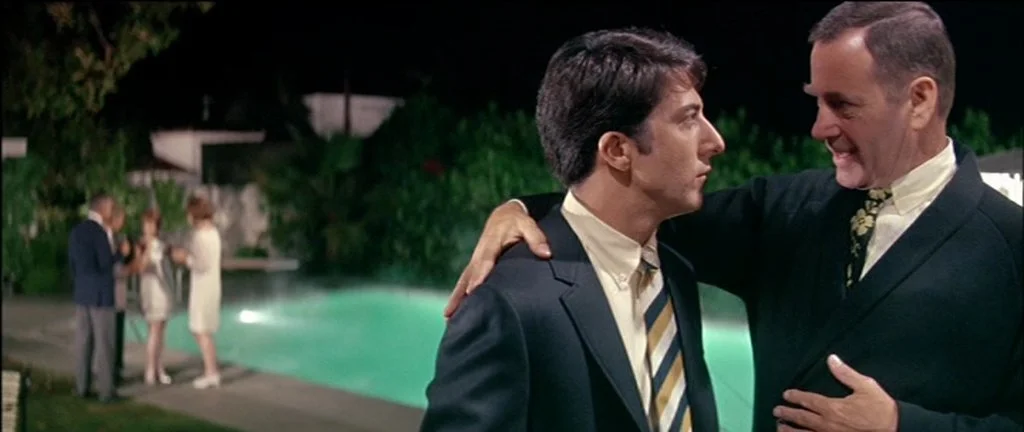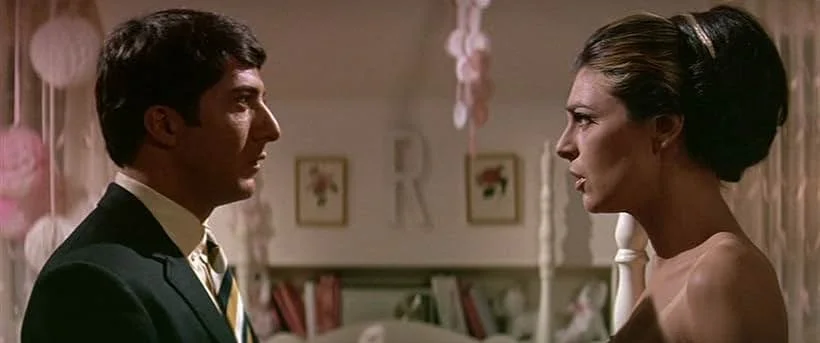There’s something seductive about great movies—the way they invite people in with their charm over and over again. Irresistible. Sexy. Knows why you like it.
Ok, maybe I’m taking this too far.
But part of what makes some of the most seductive movies so memorable is that they’re polarizing. Some people will absolutely love them, while a few will detest them.
And this particular movie is nothing if not bold. Screw the sounds of silence—this one comes in with a full-on ruckus.
Of course, we are here with 1967’s The Graduate, written by Buck Henry and Calder Willingham (based on the novel by Charles Webb) and directed by Mike Nichols.
Most of these films come in with a definitive statement, but The Graduate, like many grad students, comes in with a question: Are we destined to turn out just like our parents?
This isn’t just asked on a family level, but on a generational level, asking whether the Bens and Elaines of the world will turn out just like Mrs. Robinson, Mr. Braddock, and Mr. Roper managing the Berkeley apartments.
Ben is completely lost after graduating. He has no idea which way to turn in life. His parents want him to become a replica of them, and everyone offers him advice—from "Plastics" to Mr. Robinson pouring him scotch no matter how many times he asks for bourbon.
He is eventually seduced by one of his parents’ friends, giving in because, at least, Mrs. Robinson is just floating there too, instead of doing anything particularly active.
But when he meets Elaine, he connects with someone for the first time from his generation. She’s convinced, though, by her parents to go for a doctor, who would lead her to a life similar to theirs, and to stay away from Ben (ok, ok, in fairness, he did hook up with her mom).
But in the ultimate rebellion against his parents and the older generation, Ben thwarts the wedding and runs away with Elaine to live happily ever after…
Or maybe not. The ending has so many interpretations, and with that lingering look on their faces, it’s unclear what their fate will be. Will they break free from the path of their parents, or will their act of rebellion just cement their fate even deeper? This is why the film asks more of a question than a statement.
And though I tend to be an optimist with film endings, I can’t help but note that the Simon & Garfunkel song "The Sound of Silence," so synonymous with Ben’s alienation, plays again. And they drop into silence—much like he did earlier in the film as he was silently dragged toward his fate. And so the bus drags them off to theirs…
If you’re a film graduate student, you might have studied this one a lot, as it employs so many notable techniques: zooms and dolly shots (often mistaken for vertigo shots), trick editing, the use of music across extended montages. I can also see this being a reason some people dislike the film.
But I think the difference between when show-off moves work and when they fall flat is how authentic they feel to the movie. And here, all the clever camera work, editing, and music choices enhance what the story is doing. They never distract—they only add. And they’ve inspired so many films since, most of which can never quite live up to what The Graduate does.
I write often about how the best movies incorporate not only these elements of art but also drama and comedy.
Of course, there’s drama and high tension—I mean, that driving scene to stop the wedding makes you hold your breath.
And although the comedy is very specific, I think it works so well. We might not have Wes Anderson without it.
This, combined with the melancholic nature of early adulthood that most of us can relate to, makes The Graduate something special.
So yes, with a movie that so many people connect to, there are plenty who don’t connect with it either.
Famously, Roger Ebert was not a fan. And it only has an 83% on Rotten Tomatoes—which might seem high, but when you consider that Avengers: Endgame sits at 94%, you might start to wonder why The Graduate is considered such a masterpiece.
But this is a problem with rating systems like Rotten Tomatoes. They work on a binary: either the critic liked it or didn’t. It doesn’t account for how some films are broadly "pretty good" to everyone, while others may be divisive—hated by a few, but deeply meaningful and great to others.
And that’s the thing with the most seductive films. For some, it will win them over for a wild time; for others, you’ll have to excuse them if they don’t want to shake its hand.
But despite this movie being very much of the '60s, it resonates with people born at any time. Like Mrs. Robinson, it has the capability of seducing much younger generations. And I feel confident it will continue to do so for many generations to come.




